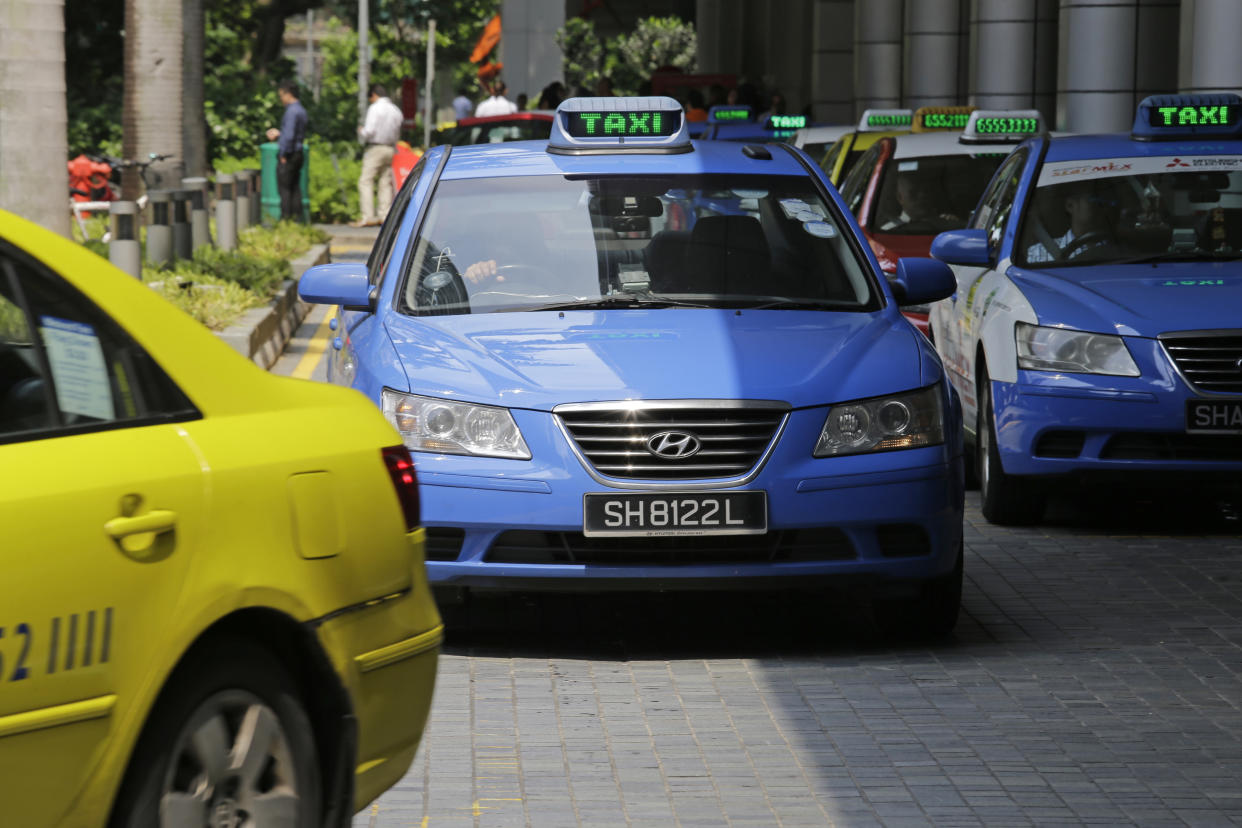COVID-19: ComfortDelGro Taxi CEO urges more financial aid for cabbies

SINGAPORE — The chief executive of transport group ComfortDelGro's taxi business on Thursday (27 February) called on the government to provide more financial aid for taxi drivers who are adversely affected by the COVID-19 outbreak.
In his Budget 2020 debate speech in Parliament, ComfortDelGro Taxi CEO Ang Wei Neng pointed out that one way the government could do this is to match what taxi companies are providing for their drivers by boosting the recently-announced $73 million Special Relief Fund.
“All taxi companies (here) are providing additional help at over and beyond the government’s Special Relief Fund of $10 per day,” said Ang, who is also the Member of Parliament for Jurong GRC. “Taxi companies are already running at a loss and...biting the bullet.”
Under the fund, part of a $77 million support package for taxi and private hire car drivers to defray costs during the outbreak, drivers receive up to $20 per vehicle per day for three months, contributed equally by the government and the operators.
ComfortDelGro later announced that it will be providing an additional $10 million in rental rebates for its employees till end-April.
This comprises a daily rental rebate of $16.50 per taxi from 21 February till end-March, translating to $660 for the period, and a daily $10 rebate for the entire month of April.
This would mean that ComfortDelGro cabbies will see a daily rental reduction of $36.50 till end-March, $30 till end-April and $20 till end-May.
The call for additional financial aid is due to taxi drivers being more adversely hit by the COVID-19 situation, compared with the Severe Acute Respiratory Syndrome (SARS) outbreak in 2003, Ang pointed out.
“During the SARS period, apart from a drop in foreign visitors, locals are still going to work as usual, but today many office workers are now taking turns to work at home, and therefore the taxi drivers’ businesses are getting from bad to worse,” he said.
Ang had previously said in a press release on 20 February announcing the additional $10 million of aid that cabbies have seen their income drop between 20 per cent and 30 per cent.
Green vehicle initiatives
Ang also expressed his support for the move towards more sustainable and green transport solutions and to phase out petrol and diesel vehicles by 2040, which was announced during Budget 2020 last week.
“On a yearly basis, ComfortDelGro replaces more than 1,000 taxis on average and we are keen to replace them with cleaner vehicles which emit less carbon dioxide,” said Ang.
“Currently, we are trying to speed up the replacement of diesel taxis with petrol-electric hybrids. Meanwhile, we also have four full-electric taxis.”
Ang, however, questioned the viability of the Electric Vehicle Early Adoption Incentive, which was also announced during Budget 2020, as well as the government’s push for fully-electric vehicles.
Under the scheme, those who buy fully electric cars and taxis will get a rebate of up to 45 per cent on the additional registration fee, capped at $20,000. It will run for three years from January 2021.
“When I do a calculation based on the most popular Korean full-electric passenger car, the electric vehicle early adoption incentive scheme does not appear to be attractive. In fact, the current Carbon Emission-Based Vehicle Scheme, which offers up to $30,000, is more attractive,” he said.
Separately, the additional road tax incurred by electric vehicles as well as the inconvenience of taking 30 minutes to one hour to fully charge them make their adoption less attractive, Ang added.
He said, “Thus, I will like to clarify with the Ministry of Finance – did they really think that Electric Early Adoption Incentive scheme will entice fleet owners like us to choose electric vehicles over hybrid vehicles?”
“Do not get me wrong. I'm supportive of having more green and clean vehicles, it is just that we do not want Singapore to bet on the wrong clean car, like the experience we had with compressed natural gas (CNG) cars.”
Ang was referring to the authorities’ push for CNG vehicles in Singapore starting in 2001. According to the Land Transport Authority’s figures, CNG cars have dropped from a peak of 2,706 in 2010 to 250 last year. The last CNG taxi, belonging to Trans-Cab, was scrapped in December 2017, a drastic drop from a peak of 2,836 such vehicles in 2011.
“Rather than putting all eggs in one basket, I would like to suggest to consider other alternatives, to not replace but supplement electric vehicles, such as hydrogen fuel cell vehicles,” Ang said, adding the countries like China, Japan, and South Korea are already looking to ply their roads with millions of such vehicles.
Ang also lauded Budget 2020 for the “deep understanding of what Singaporeans are feeling and going through”.
“I am also heartened that in preparing the Budget 2020, Deputy Prime Minister (Heng Swee Keat) and his team spoke to more than 1000 people, including corporate chiefs to collect feedback,” he added.
“As someone who is active in both the public and private sectors, the issue of balancing regulations to take care of the interest of regulators and the companies being regulated is one which continues to be a concern for many.”
Related stories:
Parliament: Pay more to low-wage workers fighting COVID-19, NMP Walter Theseira urges
COVID-19: FairPrice CEO Seah Kian Peng urges shoppers who have excess stocks to donate to charity
COVID-19: Panic buying shows 'lack of trust' in government's crisis messaging, says Yaacob Ibrahim


